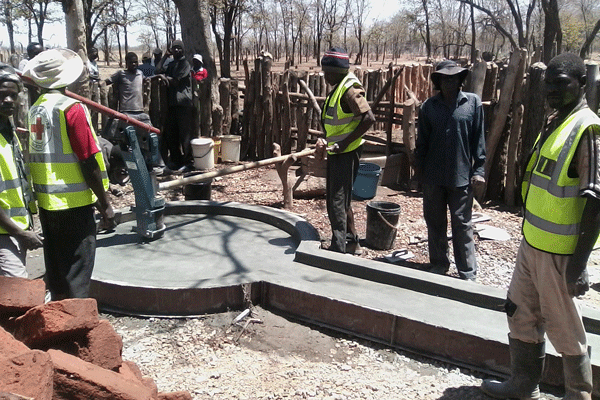
DROUGHT is a major threat to livelihoods requiring urgent intervention, according to a participatory vulnerability capacity assessment (VCA) recently conducted by communities in arid Mwenezi District, 500km south east of Harare.
BY OUR CORRESPONDENT

The Zimbabwe Red Cross Society (ZRCS), with financial and technical support from the British Red Cross (BRC), recently engaged communities in Mwenezi District in the participatory process used to identify and analyse the underlying root causes that make communities vulnerable to disasters, as well as existing capacities to reduce risks and disaster impact.
The process started with a five-day training of 30 Red Cross volunteers and seven stakeholders. Local stakeholders from the rural district council, Ministry of Youth, Agritex and Ministry of Health, Livestock Production Department and the district administrator took part in the process.
According to the local leadership, the VCA proved a critical tool which enabled them as affected communities to take a lead in identifying and advocating for relevant humanitarian interventions which address their needs.
“This is a grassroots approach as community members are engaged in identifying hazards and challenges affecting their communities for future decision making. We applaud this approach by the Red Cross and we hope this will continue in the long-run as we strive for sustainable projects in the ward,” said the councillor for Ward 8.
To collect the data, the multi stakeholder team had meetings with the members of the targeted wards, with an estimated 200 community members in Ward 5, 186 community members in Ward 8 and about 300 community members in Ward 14.
The purpose of the VCA was to get more information about the disasters that afflict the area, to look at the most affected and those that are vulnerable to the hazards, as well as to find out the capacities that exist in the wards.
- Chamisa under fire over US$120K donation
- Mavhunga puts DeMbare into Chibuku quarterfinals
- Pension funds bet on Cabora Bassa oilfields
- Councils defy govt fire tender directive
Keep Reading
Generally from the VCA, the main hazards that were raised by the communities were drought, diarrheal diseases and malaria in Ward 14 while drought, diarrheal diseases and animal attack were identified as hazards in Ward 5. Drought again emerged as a major hazard in Ward 8 while diarrheal diseases and bridges were the other hazards.
From the exercise, it was noted that communities had capacities to deal with the challenges and the ZRCS could then support through knowledge provision, especially provision of safe water, sanitation support and supporting communities with irrigation support for sustainable livelihoods.
“We have learnt a lot through the VCA process and the whole community can’t wait for the feedback meetings so that we participate in future activities which can improve our way of living. This is a new and fresh chapter for Ward 5,” said a Ward 5 villager who participated in the VCA.
ZRCS, with the support of the BRC, is implementing the community resilience project in Mwenezi and Chipinge. The project’s main thrust is to improve livelihoods and resilience of communities in Chipinge and Mwenezi districts focusing on thematic areas of food security and livelihoods, water, sanitation and hygiene as well as disaster risk reduction.
Through this intervention, it is anticipated that communities and households will be better able to anticipate, adapt and respond to shocks at household and community level while ZRCS staff and volunteers have the capacity to deliver, coordinate, and advocate with communities, local government, and other stakeholders to empower communities to anticipate, adapt and respond to shocks.










